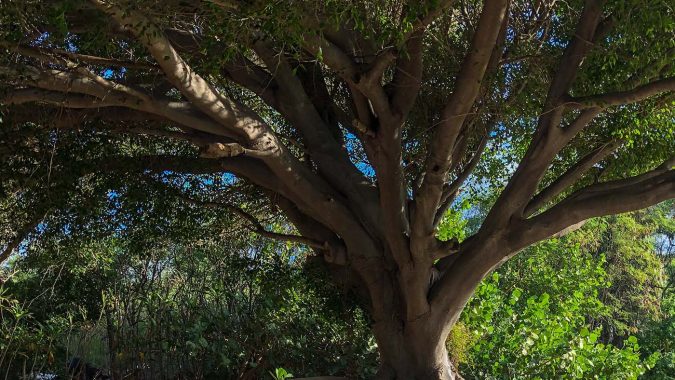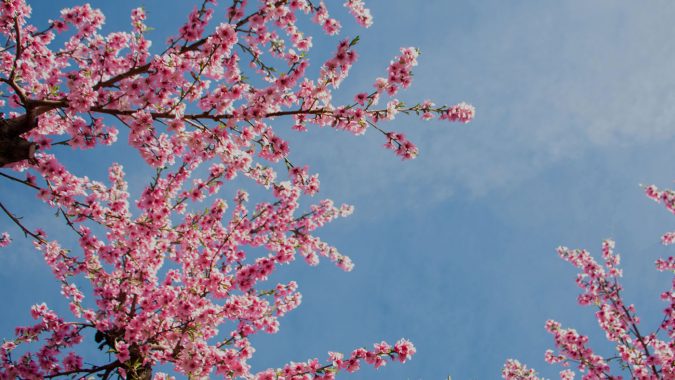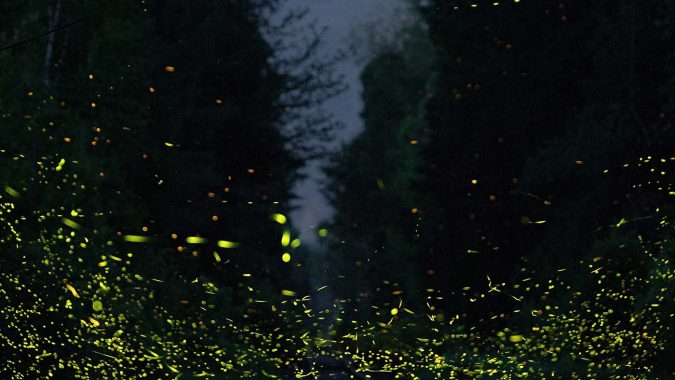
On the night that the Buddha attained enlightenment, while in his meditative absorption, he experienced several stages of awakening. First, he directed his mind – which was “concentrated, purified, bright, unblemished, rid of defilement, pliant, malleable, steady, and attained to imperturbability” – to the recollection of all his previous lives, going back many eons of “cosmic contraction and expansion.”
The Buddha then directed his mind to “the passing away and reappearance of beings,” which constitutes rebirth – sometimes referred to as reincarnation. In this second watch of the night, he gained knowledge of the intricate workings of the “law of karma,” and how our conduct and views have consequences that stretch across lifetimes. “Karma” (Pāli: kamma) is a Sanskrit term that means “action” or “doing.”
These beings, who were endowed with bad conduct of body, speech and mind, who reviled noble ones, held wrong views and undertook actions under the influence of wrong views, with the break-up of the body, after death, have re-appeared in the plane of deprivation, the bad destination, the lower realms, in hell.
But these beings, who were endowed with good conduct of body, speech, and mind, who did not revile noble ones, who held right views and undertook actions under the influence of right views, with the break-up of the body, after death, have re-appeared in the good destinations, in the heavenly world.
Thus, by means of the divine eye, purified and surpassing the human, I saw beings passing away and reappearing, and I discerned how they are inferior and superior, beautiful and ugly, fortunate and unfortunate in accordance with their kamma.
Bhayabherava Sutta: Fear and Terror
With his penetrative insight, the Buddha saw that karma is experienced in several realms of rebirth. And, the fruit, or result of karma (karma-phala: “fruit of action”) can arise right here and now, later in this lifetime, and following that.
The Buddha presented the Noble Eightfold Path as “the path of practice leading to the cessation of karma.” He also revealed the importance of intention:
Intention, I tell you, is kamma. Intending, one does kamma by way of body, speech, and intellect.
Nibbedhika Sutta: Penetrative
He also cautioned us to be diligently mindful with regard to the law of karma:
Do not overlook tiny good actions, thinking they are of no benefit; even tiny drops of water in the end will fill a huge vessel. Do not overlook negative actions merely because they are small; however small a spark may be, it can burn down a haystack as big as a mountain.
Dharma Master Cheng Yen affirms that the law of karma is one of the Buddha’s most important teachings, and although we don’t feel or see it, karma governs our life.
How our life turns out is sometimes beyond our control, and the workings of karma are truly inconceivable. In our past lives, we’ve done numerous deeds, both good and bad. Good deeds create positive karma, and bad ones create negative karma. Positive karma will lead to good fortune and a blessed life; negative karma will lead to misfortune and suffering. Yet, people are usually not aware of the influence of karma on their life.
Karma means that we reap what we sow, but it’s often difficult for us to understand how this plays out because different karma ripens at different times. When we create karma, we store a karmic seed in our consciousness. This seed can come to fruition in our present life, our next life, or in another future life. For example, around us we may notice people who do bad things but still enjoy good fortune. It seems like they don’t experience retribution for the bad things they’ve done. However, their good fortune actually comes from the positive karma they’ve created in past lives. It’s not that their bad deeds don’t create negative karma; rather, the negative karma they’re creating in this life has yet to ripen and come to effect.
All of us create a mix of both positive and negative karma. Both of these ripen across lifetimes and will one day bear their fruits. When our karma comes to fruition, it’s very hard or even impossible to avoid it. The only way that we can attempt to avoid it is to understand the law of karma and not create negative karma in the first place, because once we’ve planted a karmic seed, it will eventually bear fruit, no matter how long it lays dormant in our consciousness.
Our karma also doesn’t ever change its characteristics. Although our negative and positive karma are mixed together in our consciousness, the positive karma will still lead to good, the negative will still result in retribution. Positive karma will not give rise to retribution nor negative karma to good fortune. Furthermore, karmic seeds won’t disappear, however long ago they were created. We should understand this. The time when our karma ripens may vary, but its fruition will eventually come.
The Buddha wants people to know how karma works: Positive karma begets good fortune; negative karma begets misfortune. Once we understand this principle, we’ll know how to conduct ourselves so that our actions create positive instead of negative karma.
In our next blog on the topic of karma, Master Cheng Yen teaches about karmic affinities – the negative or positive karmic ties we formed in past lives – and how they influence our relationships in this life.
The section in italics contains edited excerpts from material written by the Jing Si Abode English Editorial Team, based on Dharma Master Cheng Yen’s talks in Chinese.
































